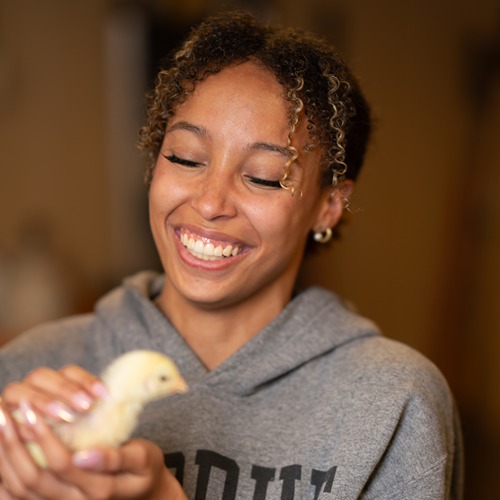New pilot plant equipment expands horizons for food science
Purdue University’s Department of Food Science’s pilot plant is a key component of its mission to prepare graduates to enter the job market and support industry. The plant houses industry-grade equipment, which is used by researchers, students and food production companies looking for a risk-free setting to production processes. Two recent equipment acquisitions will enhance every facet of the plant’s capabilities.
Acquired over the past year, the Advanced Processes Solutions (APS) and the retort processing system offer two different ways to package shelf-stable food from aseptically filled plastic bottles to cans.
“The APS can be used to package all kinds of products, from bottled protein drinks to baby foods. In this system, the product runs through an aseptic system, which allows it to retain most of its nutrients because it is not processed for a long time,” said Dharmendra Mishra, assistant food science professor, who uses the systems for research. “The retort is like a large pressure cooker. We put the cans with the food inside, and the product cooks in the can.”
The systems increase the department’s research capabilities and the number of companies with which the plant partners. The department partnered with APS for the state-of-the-art aseptic processing system and Morgan Foods, an Indiana company, for the purchase of the Allpax multi-mode retort.
Erik Kurdelak, pilot plant manager, said many companies that contact him about running tests are looking for ways to audition equipment before investing in it. For example, a company might not know whether the retort or the APS aseptic system is the best processing system for their product before investing in commercial manufacturing systems.
Another benefit of the equipment, Kurdelak said, is that it’s scalable. There is an algorithm that directly converts the process run on this equipment to a larger-scale product and facility, which is uncommon.
“It’s a really big deal for a company to put in an aseptic system so companies often want to make sure it’s worth it,” Kurdelak continued. “While Hoosier businesses will benefit from the retort and APS, the greatest benefit is to our students who will receive the same experience here as they would at a research and development facility.”
Due to COVID-19, work at the pilot plant has been paused, but Mishra and Kurdelak said they are excited to get students and companies back into the plant to explore the new opportunities these machines offer.
“We are one of the few universities that can boast access to this kind of equipment,” Mishra said. “We’re training industry professionals on the same equipment as our students. That’s very rare.”






